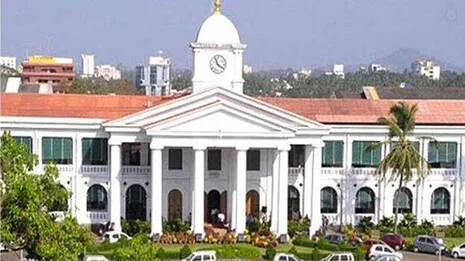
Delhi residents woke up to a chilly morning on December 15 as a thin layer of fog hung over the national capital and temperatures dropped to a minimum of 6 degrees Celsius. As per the India Meteorological department (IMD), the temperature throughout the day is forecast to remain at 19 degrees Celsius with the maximum temperature to remain around 22 degrees Celsius. The Air Quality Index (AQI) in the national capital remained in the ‘poor’ category further worsening due to cold wave conditions.
According to the Central Pollution Control Board (CPCB), the AQI in Delhi was recorded at 246 at 7 am today, a little above from the 212 recorded on December 14. The temperature also continued to drop, with the India Meteorological Department (IMD) reporting a temperature of 6 degrees Celsius at 5:30 am compared to 9.4 degrees Celsius the day before.

AQI readings in various parts of Delhi were as follows: 292 in Anand Vihar, 256 in Alipur, 298 in Bawana, and 288 at Burari Crossing. Other areas reported similarly high levels, such as Dwarka Sec 8 with an AQI of 258, Nehru Nagar at 299, Rohini at 288, and Mundka at 317. The Commission for Air Quality Management (CQAM), which is responsible for air quality over Delhi-NCR, introduced a revised plan on December 14 to combat winter pollution, urging states to enforce stricter measures when air quality declines.
The revised plan also mandates that schools switch to hybrid learning on days with severe air pollution. The revised norms comprise stricter conditions for vehicles, office and school timings, CNG and diesel-run vehicles and new GRAP guidelines to combat air pollution in Delhi-NCR. The IMD has issued a warning for ‘cold wave to severe cold wave’ conditions across parts of North India, including Punjab, Haryana and Uttar Pradesh.
IMD scientist Soma Sen Roy cautioned that temperatures could drop by 1-2 292 due to winds blowing through North India, with the cold wave expected to last for one to two days in North and Central India. With temperatures plummeting to single digits, people across Delhi sought refuge in shelter homes. Visuals from areas like Jama Masjid and AIIMS showed individuals wrapped in thick blankets, trying to sleep in the freezing conditions.
Ved Pal, who works at the shelter near AIIMS, shared that more than 40 people used the shelter on Saturday night. “This is a family shelter, and we provide beds, blankets, food twice a day, and tea with rusk in the morning,” he told ANI. He also mentioned that a doctor visits the shelter regularly to address health concerns, or residents are taken to the nearby AIIMS hospital if needed.
“We keep general medicine like paracetamol and assist them in getting further medical attention,” he added..










